 UH-nett Vest har som et viktig formål å fremme forskningssamarbeid mellom Universitetene i Agder, Bergen og Stavanger (UiA, UiB og UiS) samt Høgskulen på Vestlandet (HVL) og i Volda (HVO). Midlene til forskningssamarbeid skal stimulere til utvikling av forskning på tvers i UH-nett Vest.
UH-nett Vest har som et viktig formål å fremme forskningssamarbeid mellom Universitetene i Agder, Bergen og Stavanger (UiA, UiB og UiS) samt Høgskulen på Vestlandet (HVL) og i Volda (HVO). Midlene til forskningssamarbeid skal stimulere til utvikling av forskning på tvers i UH-nett Vest.
Midlene skal i hovedsak gå til enkeltprosjekter hvor minst tre av institusjonene i UH-nett Vest står bak søknaden. Normalt kan det tildeles inntil 250.000 per søknad.. Tildelte midler må brukes innen utgangen av 2020 og det skal sendes rapport og regnskap for bruken av midlene. Søknadsfrist er 15. oktober 2019. For mer informasjon, se her.
Thursday last week, rector Dag Rune Olsen and his close co-workers in the Rectorate visited the MN Faculty and each and one of its seven departments, chemistry included. At our department we invited the dignitaries to spend the allotted 30 minutes in one of our laboratories, to take part in our enthusiasm for chemistry and to gain some first-hand experience with our subject. This was a very nice opportunity to give some examples of what we as a department and chemistry as a discipline contribute with in the larger, societal context. We can always use a helping hand from Rector!

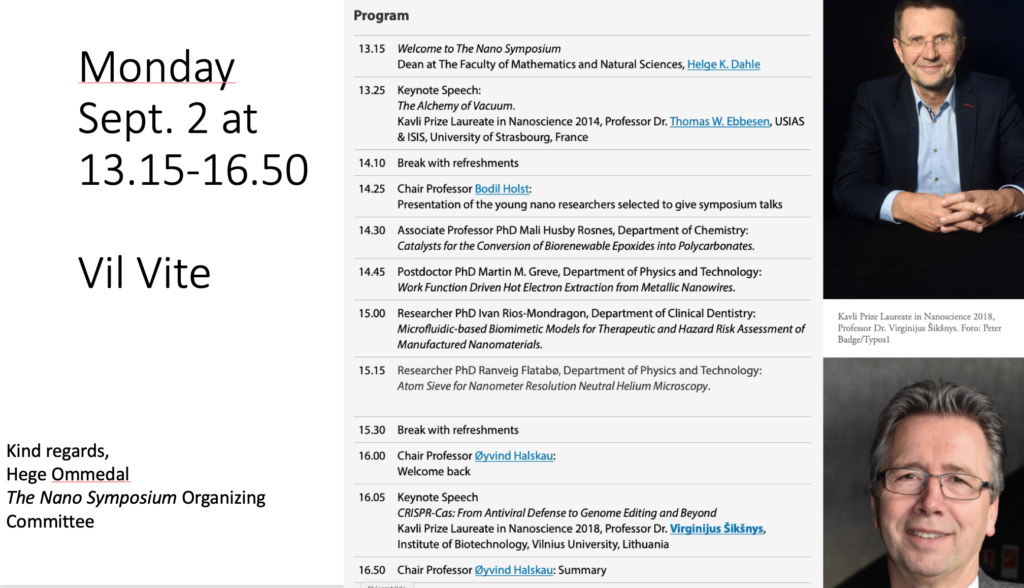
Pushpak Mizar has recently joined the department as a postdoctoral researcher working with Nathalie Reuter and Bengt Erik Haug on the BIOTEK2021/Digital Life Norway-funded RESPOND3 project. 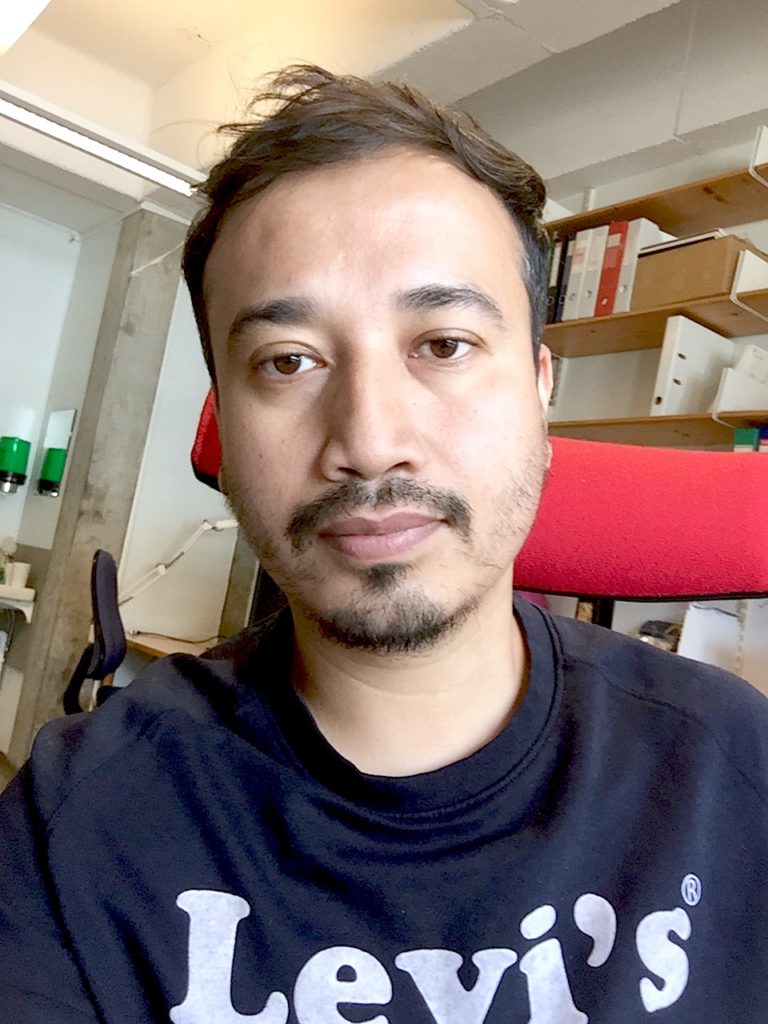 He holds a master’s degree in chemistry and a PhD within organic synthesis from the North–Eastern Hill University, Shillong, India. After completing his PhD, he held various position at JNCASR Bangalore, India, Cardiff University in Wales as Marie Curie international incoming fellow, University of Antwerp, Belgium and as a Wellcome Trust Fellow in chemical biology at the University of Southampton, UK.
He holds a master’s degree in chemistry and a PhD within organic synthesis from the North–Eastern Hill University, Shillong, India. After completing his PhD, he held various position at JNCASR Bangalore, India, Cardiff University in Wales as Marie Curie international incoming fellow, University of Antwerp, Belgium and as a Wellcome Trust Fellow in chemical biology at the University of Southampton, UK.
 Nina Henne recently joined the department as a PhD student working with Bengt Erik Haug. She has both a bachelor- and a master degree from the University of Bergen and has for the past four years worked as an engineer at the Core Facility for Metabolomics at the Department of Clinical Science at UiB. In her PhD project, which is funded through the Centre for Pharmacy at UiB, she will work on the development of inhibitors of a class of enzymes denoted N-terminal acetyltransferases. The PhD-project is part of an on-going collaboration between the Haug group and professor Thomas Arnesen at the Department of Biomedicine at UiB.
Nina Henne recently joined the department as a PhD student working with Bengt Erik Haug. She has both a bachelor- and a master degree from the University of Bergen and has for the past four years worked as an engineer at the Core Facility for Metabolomics at the Department of Clinical Science at UiB. In her PhD project, which is funded through the Centre for Pharmacy at UiB, she will work on the development of inhibitors of a class of enzymes denoted N-terminal acetyltransferases. The PhD-project is part of an on-going collaboration between the Haug group and professor Thomas Arnesen at the Department of Biomedicine at UiB.
Hopefully you have all had an enjoyable summer vacation and are now simmering with energy and ideas for the new semester! This week we are receiving new and returning students in chemistry, pharmacy, nanotechnology, medical technology, and energy! Let us continue the proud tradition of the Chemistry Department in welcoming the students in a friendly, helpful and efficient manner!

Foto: Eivind Senneset, UiB
At the recent International Symposium on Olefin Metathesis and Related Chemistry in Barcelona (ISOM23), the Conference Board elected University of Bergen to organize the next symposium in this series. Vidar R. Jensen and Deryn E. Fogg will co-chair the event, which will take place during the first week of July, 2021. This is a nice and timely recognition of the contributions from the Bergen group to olefin metathesis!
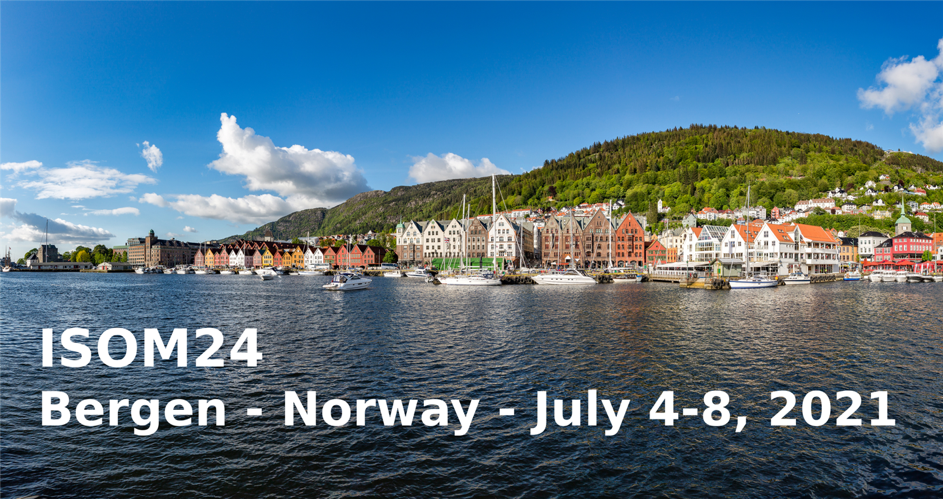
In addition to placing Bergen even more solidly on the “map of olefin metathesis”, the conference will offer a unique opportunity to showcase the Department of Chemistry, Norwegian homogeneous catalysis, Bergen as a conference city, and, of course, Bergen and the West coast of Norway as a superb tourist destination.
At the recent International Symposium on Olefin Metathesis and Related Chemistry, the #1 forum for exchange of the latest scientific results on olefin metathesis, Department of Chemistry contributed no less than two plenary lectures (Vidar R. Jensen and Deryn E. Fogg) and three posters (presented by Marco Foscato, Immanuel Reim, and Jonas Brattebø Ekeli) to the program in sunny Barcelona.

Poster-prize winner Jonas Brattebø Ekeli (number two from right) accompanied by the Jury Chair, Christophe Coperét (number two from left), Odile Eisenstein (right) and the Conference Chair, Xavier Solans-Monfort.
Moreover, in a fierce competition involving a total of 56 posters, Jonas was one of three poster presenters to be awarded the first price: 150 Euros donated by ACS Catalysis. Jonas’ competitors were almost all his seniors (PhD students and postdocs), which makes his achievement all the more impressive. Congratulations! He presented the poster Z-Selective Ru-Indenylidene Olefin Metathesis Catalysts with remarkable structural features, with co-authors Wietse Smit, Bartosz Woźniak, Giovanni Occhipinti, Karl W. Törnroos, and Vidar R. Jensen.
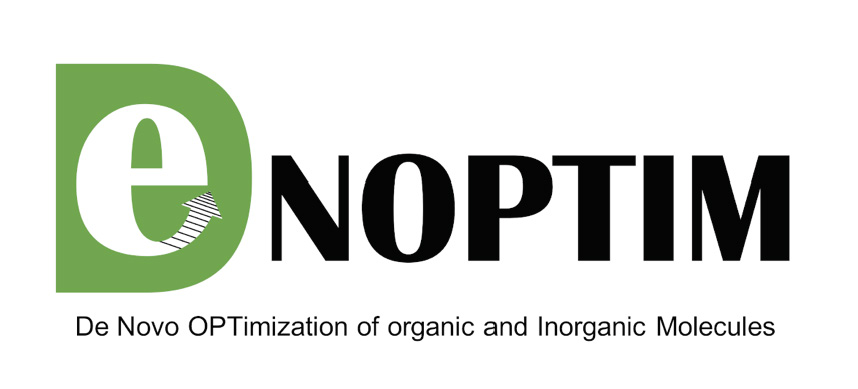 Pursuing a research vision for close-to a decade, Vidar Jensen and co-authors Marco Foscato and Vishwesh Venkatraman were happy to release the DENOPTIM software into the Open Source realm for everybody to use and to extend.
Pursuing a research vision for close-to a decade, Vidar Jensen and co-authors Marco Foscato and Vishwesh Venkatraman were happy to release the DENOPTIM software into the Open Source realm for everybody to use and to extend. 
DENOPTIM is the only available general-purpose de novo design software for molecules. It may be used to design all kinds of functional molecules, ranging from pharmaceuticals to organometallic catalysts. It may thus be used, and make an impact, across chemistry. The usage of DENOPTIM is also likely to be promoted by the fact that it is freely available as Open Source from the GitHub project. The authors have documented some of the key methods implemented in DENOPTIM in the scientific literature already. (1, 2, 3).
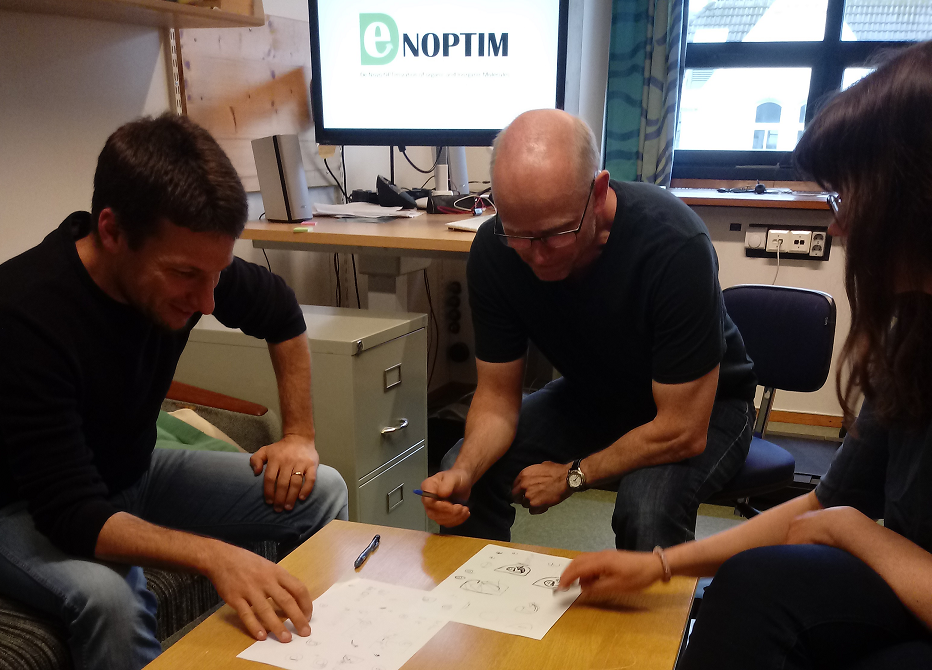
photo: Egil
In addition to providing the world with a useful tool, the launch is also about positioning the research group on the international arena. From this perspective, a fitting and catching logo is of considerable value, and Inger Johanne pitched in with creative twists! All involved parties are congratulated!
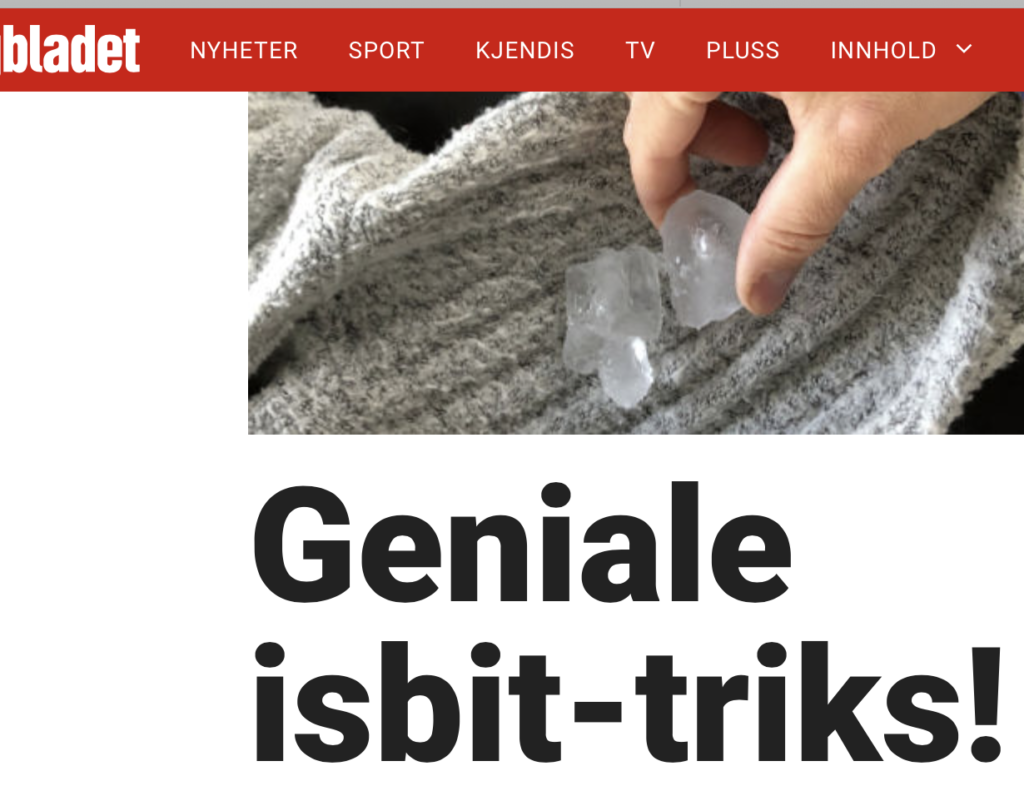 Outreach comes in many flavors and serves different purposes, yet usually entails sharing your knowledge with laymen while promoting your institution.
Outreach comes in many flavors and serves different purposes, yet usually entails sharing your knowledge with laymen while promoting your institution.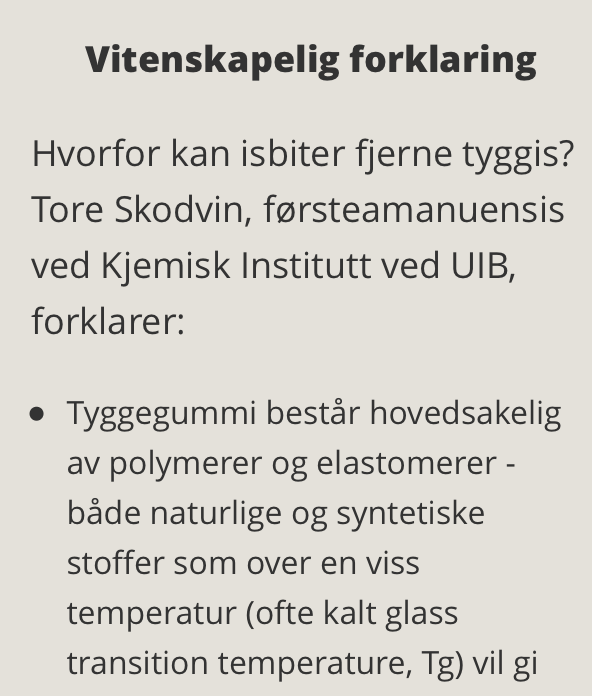 Other characteristics are that outreach takes time, is poorly paid, and depends critically on your priorities. On the positive side, you may reach crazy many readers, as Tore did today.
Other characteristics are that outreach takes time, is poorly paid, and depends critically on your priorities. On the positive side, you may reach crazy many readers, as Tore did today.
And even more importantly, he probably nudged the public opinion of what a chemist is and does, a micron or two in the positive direction. What if we all followed suit?
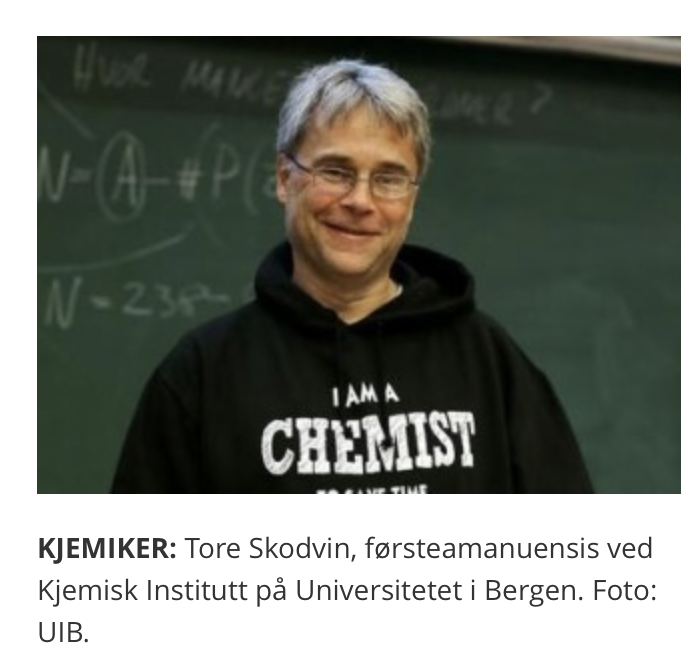
 UH-nett Vest har som et viktig formål å fremme forskningssamarbeid mellom Universitetene i Agder, Bergen og Stavanger (UiA, UiB og UiS) samt Høgskulen på Vestlandet (HVL) og i Volda (HVO). Midlene til forskningssamarbeid skal stimulere til utvikling av forskning på tvers i UH-nett Vest.
UH-nett Vest har som et viktig formål å fremme forskningssamarbeid mellom Universitetene i Agder, Bergen og Stavanger (UiA, UiB og UiS) samt Høgskulen på Vestlandet (HVL) og i Volda (HVO). Midlene til forskningssamarbeid skal stimulere til utvikling av forskning på tvers i UH-nett Vest.


 He holds a master’s degree in chemistry and a PhD within organic synthesis from the North–Eastern Hill University, Shillong, India. After completing his PhD, he held various position at JNCASR Bangalore, India, Cardiff University in Wales as Marie Curie international incoming fellow, University of Antwerp, Belgium and as a Wellcome Trust Fellow in chemical biology at the University of Southampton, UK.
He holds a master’s degree in chemistry and a PhD within organic synthesis from the North–Eastern Hill University, Shillong, India. After completing his PhD, he held various position at JNCASR Bangalore, India, Cardiff University in Wales as Marie Curie international incoming fellow, University of Antwerp, Belgium and as a Wellcome Trust Fellow in chemical biology at the University of Southampton, UK. Nina Henne recently joined the department as a PhD student working with Bengt Erik Haug. She has both a bachelor- and a master degree from the University of Bergen and has for the past four years worked as an engineer at the Core Facility for Metabolomics at the Department of Clinical Science at UiB. In her PhD project, which is funded through the Centre for Pharmacy at UiB, she will work on the development of inhibitors of a class of enzymes denoted N-terminal acetyltransferases. The PhD-project is part of an on-going collaboration between the Haug group and professor Thomas Arnesen at the Department of Biomedicine at UiB.
Nina Henne recently joined the department as a PhD student working with Bengt Erik Haug. She has both a bachelor- and a master degree from the University of Bergen and has for the past four years worked as an engineer at the Core Facility for Metabolomics at the Department of Clinical Science at UiB. In her PhD project, which is funded through the Centre for Pharmacy at UiB, she will work on the development of inhibitors of a class of enzymes denoted N-terminal acetyltransferases. The PhD-project is part of an on-going collaboration between the Haug group and professor Thomas Arnesen at the Department of Biomedicine at UiB.


 Pursuing a research vision for close-to a decade, Vidar Jensen and co-authors Marco Foscato and Vishwesh Venkatraman were happy to release the DENOPTIM software into the Open Source realm for everybody to use and to extend.
Pursuing a research vision for close-to a decade, Vidar Jensen and co-authors Marco Foscato and Vishwesh Venkatraman were happy to release the DENOPTIM software into the Open Source realm for everybody to use and to extend. 
 Outreach comes in many flavors and serves different purposes, yet usually entails sharing your knowledge with laymen while promoting your institution.
Outreach comes in many flavors and serves different purposes, yet usually entails sharing your knowledge with laymen while promoting your institution. Other characteristics are that outreach takes time, is poorly paid, and depends critically on your priorities. On the positive side, you may reach crazy many readers, as Tore did
Other characteristics are that outreach takes time, is poorly paid, and depends critically on your priorities. On the positive side, you may reach crazy many readers, as Tore did 